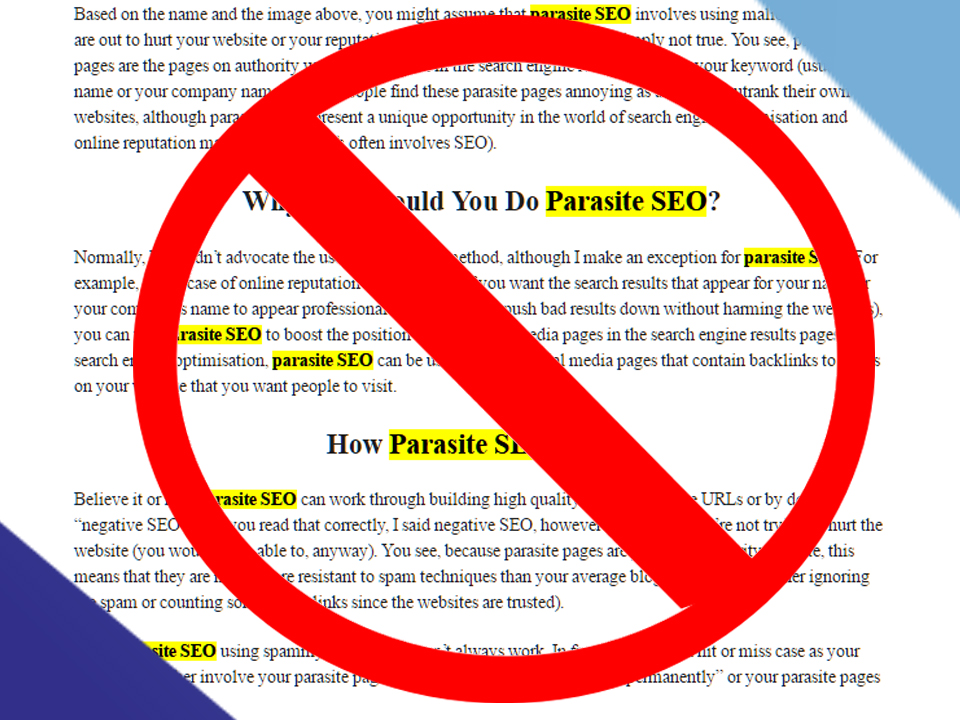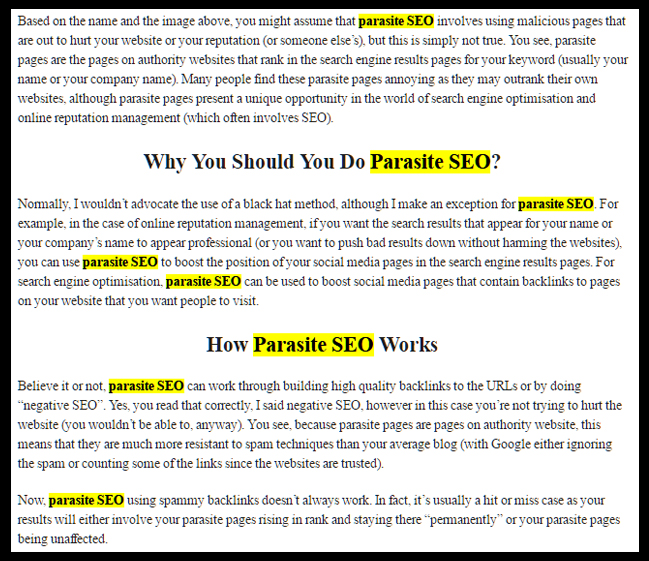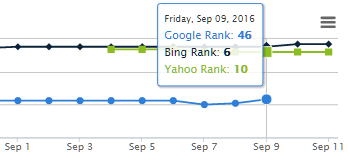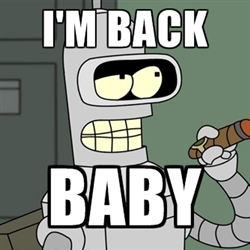Can Too Many Bold Keywords Harm Your Rankings In Google?
It’s an age-old tactic in SEO. Many online marketers both old and new tell you just how “important” it is to bold tag every instance of your primary keyword in order to “reap the SEO benefits”, but is there any truth to this claim? Does adding a bold tag to your primary keyword on your webpage actually do anything?
Lately, I’ve noticed an emergence of search engine optimisers on forums and other sites talking about the importance of bold tags in SEO. However, a huge problem in the SEO industry is that there aren’t enough people actually testing their claims; they just go around regurgitating whatever their favourite guru says and passing it off as a fact.
While I was searching for information to disprove the people who said bold tags are important factors in SEO, I came across an article on SEOPressor titled, “Stuffing SEO Strong Tag Does Not Help You Rank At All“. The results of Brian Chang’s experiment were a bit surprising; he saw his rankings drop several pages after he added the bold tags, but they returned to normal when he removed them.
His experiment piqued my interest, so I thought I would run a short experiment of my own to see whether or not I would have the same negative results as Brian Chang from SEOPressor.
The “True” Effect of Adding Too Many Bold Keywords (September, 2016)
For this experiment, I’m going to add bold tags to the primary keyword (“parasite SEO”) on an article here on Sycosure called, “Everything You Need To Know About Parasite SEO“. I chose this article specifically because it’s never ranked well to begin with, so I won’t be too disappointed if the rankings drop. I also have historical ranking data on that page’s primary keyword, which will make it easier for me to compare the rankings before and after the changes.
September 7th, 2016: The Bold Tags Were Added To The Primary Keywords
I started off by, you guessed it, adding a bold tag to my primary keyword across the page. I’ve posted a screenshot of part of the page below.
Next up, I’m going to be monitoring the rankings using SerpBook as well as checking the rankings manually in Google to confirm any changes (just in case SerpBook happens to be wrong).
September 10th, 2016: The First Rank Changes
So far, the results are exactly as I expected; though my article was still indexed in Google, it was nowhere to be seen for the primary keyword. According to SerpBook, it dropped “53 positions”, although Serpbook only tracks up to page 10.
Something interesting to note is that the Yahoo and Bing rankings remained the same for the most part. Actually, it looks like the Bing rankings went up a bit.
September 14th, 2016: The Bold Tags Were Removed From The Primary Keywords
Now this was unexpected. I hadn’t checked the rankings in a few days, but when I finally got around to it on the 14th, I saw that the article was showing back up in the SERPs for its primary keyword again, although this time the rankings were a single position higher than they were before.
I was a bit sceptical about the sudden ranking recovery, so I manually checked this one in Google to confirm, and it looks like the site is really back in the SERPs.
September 15th, 2016: Rank Boost After Bold Tag Removal
This could very well be just another ranking dance, but a day after I removed the bold tags from the page, the page’s rank went up to 41 from 44.
I’ll give it a few more days to see if the page’s rankings drop again.
September 17th, 2016:
It’s been 3 days (closer to 4 days, actually) since I removed the bold tags. It appears that the page’s rankings have only jumped 1 position during this time.
At the beginning of this experiment, the rankings for that page were consistently between 45-50 with no bold tags. Now, despite the page being exactly the same as it was at the beginning of the experiment, it seems as if the page’s rankings are slightly higher than before. I have a theory on why this happened, which I’ll get to at the end of this article.
My final update to this experiment will be on September 21st,that is unless the rankings begin dancing, although at this juncture, I doubt it.
September 21st, 2016: Final Ranking Changes
Unfortunately, it looks like the page’s rankings for that keyword have essentially gone back to what they were at before the experiment.
So What Just Happened Here?
Basically, the article’s rankings danced before returning 1 position higher. However, what’s interesting here is that while I saw my rankings dance, Brian Chang from SEOPressor sawnot just a dip in rankings for his test articles, but also a dip in rankings for articles written by the same author as his test article.
Interestingly, another article, “6 Valuable Lessons To Avoid Google Penalty” written by the same Author, suffered a significant ranking drop from number 20th to 51st on 11th of June 2015 (Event A) for the keywords “avoid google penalty”, on the same day that the ranking for “7 Nifty Ways To Boost Your YouTube SEO” dropped (see above image). Both articles have no significant relation to each other than the fact that both were written by the same author (Event B). ~ Brian Chang
What We Can Learn From This Experiment
- Bold tags do influence rankings.
- Any benefits to adding bold tags to your primary keyword are negligible, at best.
- Adding bold tags to your primary keyword looks like spam.
- Adding bold tags to your primary keyword will more than likely cause your rankings to dance.
- Reversing the changes will ostensibly reverse any harm you’ve done to your rankings.
- Results may vary.
- Updating the page and then reversing the changes seems to have a small impact of the page’s rankings, although this is debatable and requires further testing. Perhaps it “tricks” Google into thinking the page was updated with fresh content. I’m currently running a test on fresh content, so be on the look out for that article sometime in the next few weeks or subscribe to this site to receive an email alert.
Differences Between This Experiment & SEOPressor’s
- My other articles did not see a ranking drop, whereas Brian Chang noticed all of the author’s articles saw a dip in rankings (we both have authorship enabled).
- Brian Chang noticed his rankings drop and only recover once he removed the bold tags. I saw my rankings dance.
- Brian Chang’s test ran for 1 week. This experiment ran for 2 weeks.
- Are The “Rank 1 In Google For Any Keyword” Services A Scam? - April 1, 2025
- OfficeOutlaw.com: Our New Internet Marketing Forum - March 26, 2025
- What You Need To Know Before Using Microsoft Teams - March 24, 2025










That’s good to know. Thanks for taking out the time to experiment on that and sharing the result.
This issue of bold tag is something that has created a lot of confusion in SEO.
You’re welcome and I’m glad you found this article helpful!